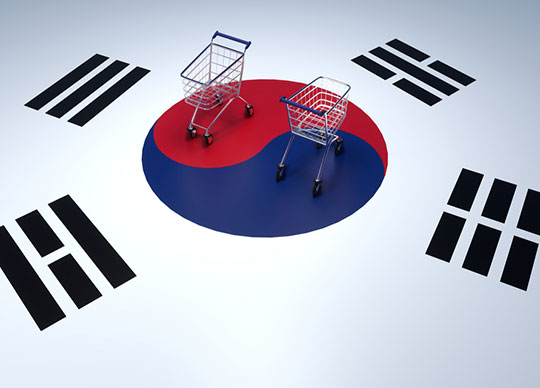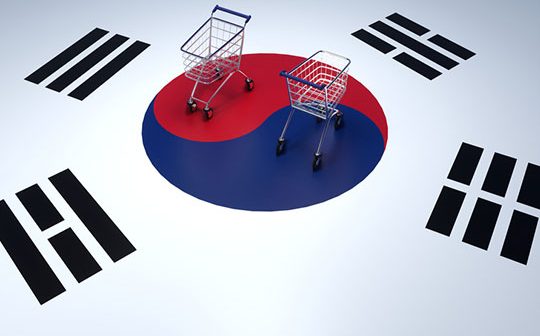
South Korea’s e-commerce market ranks among the most developed in the world and has been on a sustained growth for the past few years. Supported by the country’s robust technology infrastructure, which ensures the availability of high-speed Internet as well as a significant number of tech-savvy customers, the trend is forecast to continue over the next few years to reach KRW263.5 trillion (US$242.2bn) in 2025, says GlobalData.
Due to the COVID-19 pandemic and the subsequent lockdown and social distancing measures undertaken by government, e-commerce payments in South Korea grew by 22.2% in 2020 and are estimated to register similar growth of 25.4% to reach KRW131.0 trillion (US$120.3bn) in 2021, according to GlobalData’s E-Commerce Analytics.
Shivani Gupta, Banking and Payments Senior Analyst at GlobalData, comments: “The pandemic has transformed the way consumers shop as they are increasingly switching online channels for purchases due to social distancing rules and closure of brick-and-mortar stores. Wary consumers prefer to stay home to avoid social contact, making online purchasing even more appealing.”
While sectors such as travel and accommodation were badly affected due to lockdown and travel restrictions, a strong growth was seen in grocery, electronics, and healthcare products which led to rise in overall e-commerce sales.
Apart from traditional payment solutions, new payment methods like ‘buy now, pay later’, which is gaining popularity across the Asian-Pacific markets like Australia and India, is also set to gain prominence in South Korea with companies like Coupang and Naver offering this service.
For instance, in August 2020, Coupang launched ‘buy now and pay later’ service on a trial basis, enabling consumers to purchase products up to KRW300,000 per month (later increased to KRW500,000). The service is officially expected to launch this year. A similar buy now and pay later service was launched by online platform Naver in April 2021.
While South Korean e-commerce market is mainly driven by domestic companies, the growth opportunity is attracting international companies, which will further drive e-commerce sales. For instance, Canada-based e-commerce company Shopify launched its e-commerce platform in South Korea in June 2020. During the same month, Facebook launched Facebook Shops, a service that allows merchants to setup online shop and sell digitally.
Ms. Shivani concludes: “The COVID-19 pandemic has brought a lasting change in the consumer buying behaviour. At the same time, the drive to remain in the competition and cost-efficiency proved essential for companies to adopt e-commerce strategies. The uptrend is likely to continue over the next few years driven by the growing consumer preference, and the emergence of new online payment methods.”





